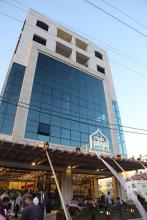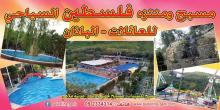English Below
Après les révolutions arabes, Hamit Bozarslan et Gaëlle Demelemestre réinscrivent enfin cette question dans toute sa profondeur historique, philosophique, sociologique.
La société démocratique est née, au xviiie siècle, de deux révolutions fondamentales : celle du peuple américain secouant le joug de la puissance coloniale britannique, et celle du peuple français renversant une monarchie millénaire.
Ce même mouvement de désaveu des systèmes politiques en place a traversé deux siècles, et la même dynamique vient d'animer, de la Tunisie à l'Égypte, les peuples de Méditerranée orientale en quête de leur autonomie politique.
Un bouleversement de ces sociétés a été initié, et est loin d'être achevé.Qu'est-ce qu'une révolution ? Autrement dit, comment son irruption dans le temps court devient-elle histoire ? Comment l'ordre nouveau qu'elle crée s'installe-t-il ?Les situations prérévolutionnaires et les trajectoires postrévolutionnaires, ce que les révolutions font aux sociétés et le sort que ces sociétés réservent à leurs révolutions : tels sont les éléments qui seront abordés lors de cette conférence.
Qui est Hamit Bozarslan :
Docteur en histoire et en sciences politiques, Hamit Bozarslan est directeur d’études à l’EHESS. Il est l’auteur, notamment de : - "Révolution et état de violence. Moyen-Orient 2011-2015"
- "Le luxe et la violence. Domination et contestation chez Ibn Khaldûn", (Prix « Med 21-Ibn Khaldûn 2016 »)
- "Histoire de la Turquie. De l’Empire à nos jours"
- "Une histoire de la violence au Moyen-Orient. De la fin de l’Empire ottoman à al-Qaida"
- "La question kurde : Etats et minorités au Moyen-Orient".
Ses travaux actuels portent sur la sociologie politique et historique du Moyen-Orient.
Conférence en Anglais
Strategic Studies building- Bandar hall
-----------------------------------------------------------
After the Arab revolutions, Hamit Bozarslan and Gaëlle Demelemestre finally reintroduced this question in all its historical, philosophical and sociological depth.
Democratic society was born in the eighteenth century of two fundamental revolutions: that of the American people shaking off the yoke of the British colonial power, and that of the French people overthrowing a thousand-year-old monarchy.
This same movement of disavowal of the political systems in place has gone through two centuries, and the same dynamic has just animated, from Tunisia to Egypt, the peoples of the Eastern Mediterranean in search of their political autonomy.
An upheaval of these companies has been initiated, and is far from over. What is a revolution? In other words, how does its irruption into short time become history? How does the new order that it creates set in? Prerevolutionary situations and post-revolutionary trajectories, what revolutions do to societies and the fate that these societies reserve for their revolutions: these are the elements that will be tackled at this conference.
Who is Hamit Bozarslan:
Doctor of History and Political Science, Hamit Bozarslan is Director of Studies at EHESS. He is the author, notably of: - "Revolution and state of violence, Middle East 2011-2015"
- "Luxury and Violence: Domination and Challenge at Ibn Khaldun", (Med 21-Ibn Khaldun Award, 2016)
- "History of Turkey: From the Empire to the Present"
- "A history of violence in the Middle East: From the end of the Ottoman Empire to al-Qaeda"
- "The Kurdish question: States and minorities in the Middle East".
His current work focuses on the political and historical sociology of the Middle East.
Conference in English
Strategic Studies building- Bandar hall








































































































































